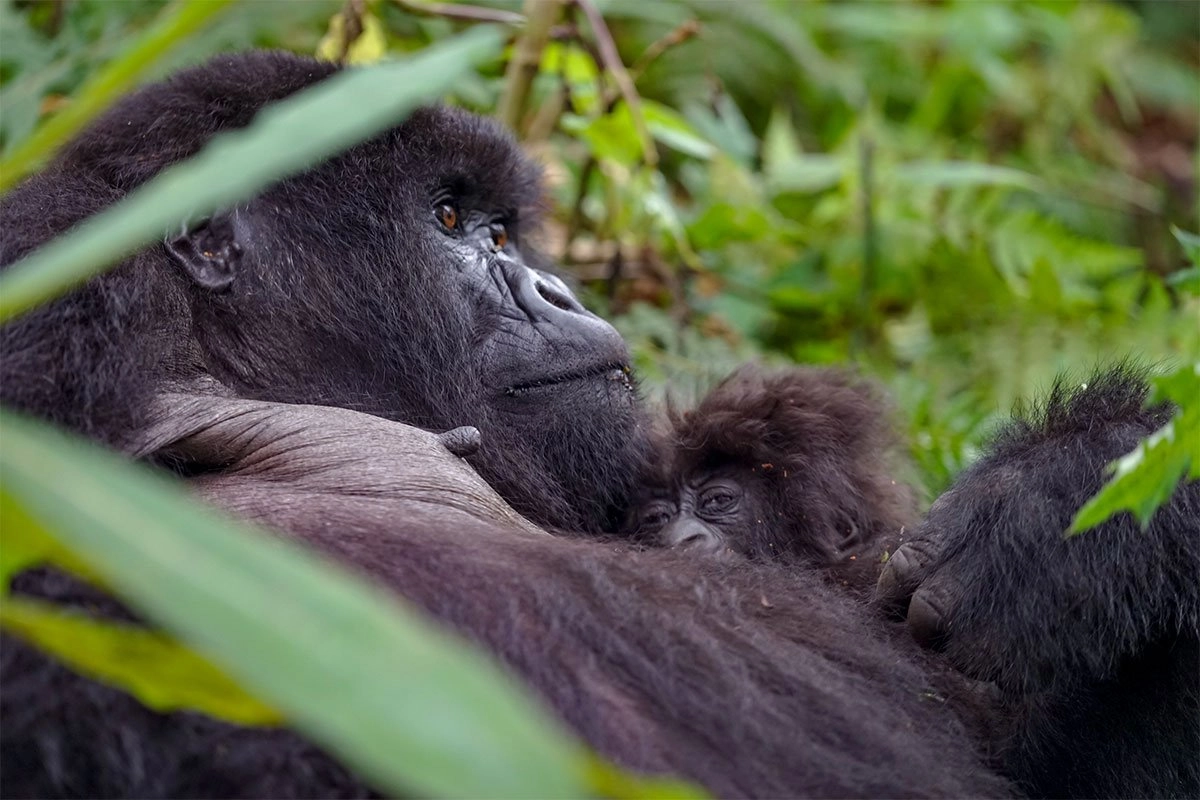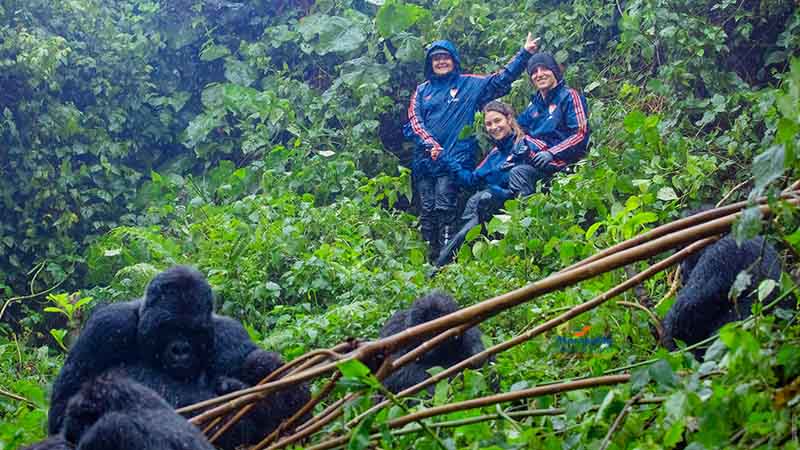Do I Need A COVID-19 Test to Undertake Gorilla Trekking in Rwanda?
One of the questions we receive from visitors planning/interested in gorilla trekking in Rwanda is whether a COVID-19 Test is required. The answer is yes, you will need to take a COVID-19 test before you can get the chance to meet face-to-face with the Giant Apes in their natural habitat.
Mountain gorilla Trekking is one of the most exciting wildlife experiences in Africa, and Rwanda the land of a thousand hills is one of the three only countries where this adventure can be enjoyed. With its 12 habituated gorilla families, a maximum of 96 gorilla permits are sold each day, allowing primate enthusiasts to spend time exploring these Giant Apes’ natural environment and one hour watching and taking photos as they interact with one another, feed, play, groom each other, rest, and nurse their infants.

Gorilla trekking in Volcanoes National Park Rwanda
However, following the Covid-19 outbreak in Rwanda at the start of 2020, all safari destinations were closed (among other restrictions) to contain the spread of the Virus and because of this, even the National Parks were not spared. It should be noted that these Giant Apes are closely related to humans, sharing about 98.2% of our DNA, and therefore, whatever affects us can affect them more hence to protect them, the Protected Areas were closed. Even after the country re-opened its economy in 2022, it was done with a number of restrictions that included wearing of face masks and providing negative COVID-19 test results.
While the COVID-19 test is no longer a requirement for travelers arriving and departing Rwanda, it is still required for visitors planning to undertake primate treks (chimpanzee trekking in Gishwati-Mukura and Nyungwe Forest National Parks), and gorilla trekking (in Volcanoes National Park). This is one of the priceless ways of protecting these Great Apes that are vulnerable to human diseases, with Covid-19 being one of them. Therefore, prior to starting your gorilla trekking adventure, you will be required to present a negative COVID-19 test result taken at least 72 hours earlier.
Gorilla permits are booked 3-6 months in advance and another question visitors usually ask is “What happens when the result indicates positive for Covid-19? Following the Covid-19 outbreak, the country relaxed some of its rules and regulations hence it is possible to reschedule your gorilla permit to a later date. However, it attracts a certain fee and you can use your gorilla permit when deemed fit and healthy to track and meet face-to-face with one of the most incredible creatures on Earth.

PCR Tests in Rwanda cost only $50 per person and can be done at the Rwanda Biomedical Center (RBC) Gikondo Branch at the Office of the Vaccination Program in Kigali, Lancet Laboratories Rwanda, the Advanced Medical Diagnostics Clinic, at the Rwanda Forensic Laboratory, and many others.
When is the best time to visit Rwanda Mountain Gorillas?
The best time to visit Rwanda Mountain Gorillas is during the dry season- January, February, June, July, August, September, and December, when precipitation levels are lower and forest trails are drier, less muddy/slippery thus more favorable for walks. However, most travelers prefer these months hence you can expect crowds, and most “first-choice” accommodation facilities don’t have space during these months.
Therefore, the rainy season is sometimes a better option because “first-choice” Safari Lodges have space and interestingly, you can be able to enjoy discounts as well. However, brace up for a more difficult walk as rainfall levels are higher and forest trails become more muddy and slippery hence making treks become more challenging. The rains clear the sky of dust hence making the months of March, April, May, October, and November perfect for photography.
Nonetheless, it sometimes becomes difficult to predict the weather in Rwanda, owing to the high altitudes of Volcanoes National Park and the effects of Climate Change. Just when you expect a clear and hot day is when you are surprised by heavy downpours, and vice versa.
